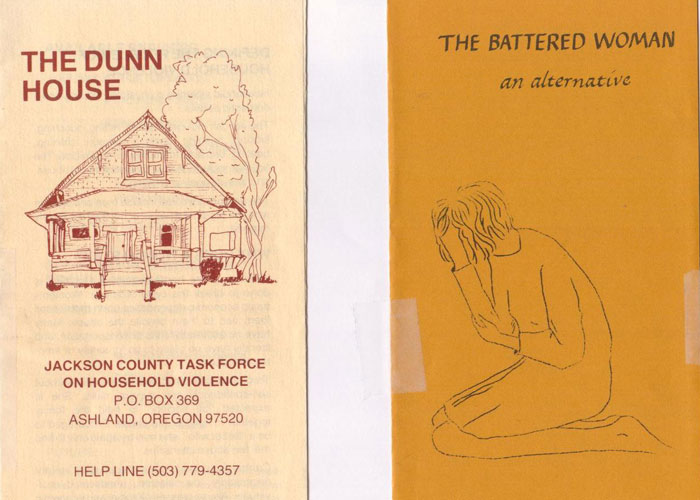Dunn House 30th Birthday Celebration
Speech by Rosemary Dunn Dalton, Initiator, Dunn House
In 1977, a small cadre of women from the SOU women’s center, Women in Transition, established the Jackson County Task Force on Household Violence and opened a shelter in Ashland for battered women and their children (Dunn House).
Today, we celebrate the 30th birthday of Dunn House. We are moved by the paradox of feeling proud yet astounded by the fact that Dunn House has provided safety for more than 15,000 families over the past 30 years. As advocates, we have shared the honor of being there to witness women’s growth and development. We have been there when the “click” happened, when a woman saw for the first time that with help, she does not have to live with violence and brutality.
Today, we observe the evolution of the movement to prevent domestic and sexual violence. Initially, we undertook the task of educating the police, mental health workers, social services, and the community at large about the need to help women secure safety. To remove the myths about domestic violence as a “family matter.” Our task force lobbied for legislation that mandated police officers to arrest perpetrators based on their assessment of probable cause.
These ideas still prevail, and today Dunn House Outreach and Dunn House Court Advocacy continue this work through education and lobbying. Community networking occurs through the Domestic and Sexual Violence Council of Jackson County. Recent legislation established a policy for survivors of intimate violence in the workplace. Dunn House has a children’s program.
Statistics remain similar. One in four girls and one in seven boys will be assaulted, molested or accosted by the time they are eighteen. One in four women will experience at least one episode of violence by the end of her marriage. Women will leave between seven to ten times before they permanently get out of violent situations. The lack of available economic resources impacts a woman’s ability to see herself able to live independently with her children. Repressive attitudes and policies are prevailing barriers.
Today, when we visit legislative halls, institutional offices, and community meetings, we repeat our message of 1977: “Help keep the women off the floors of America.” We implore, “Do your part, end domestic and intimate violence.”
Happy birthday, Dunn House.
